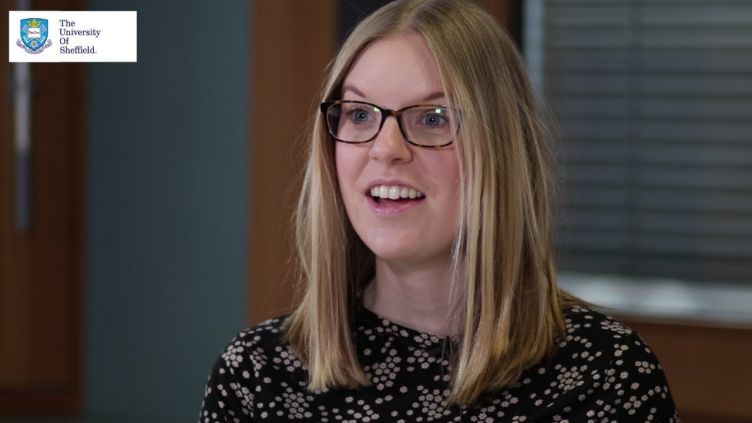Languages careers
Studying any of the languages offered at Sheffield will prepare you for a diverse range of rewarding and profitable careers. However you choose to use your degree, the combination of academic excellence and personal skills developed in your course will make you highly prized by employers.

The Sheffield languages graduate
A degree in languages will not only help you gain linguistic and cultural knowledge, but it will also train your self-awareness and your sensitivity towards the world around you. Particularly your third year abroad will be a crucial moment in your personal and intellectual development.
Your heightened cultural awareness will enable you to address problems from a variety of perspectives, critically analyse information and arrive at an independent point of view.
Managing group projects will help you develop skills in people management, negotiation, teamwork and leadership, while managing your own workload will demonstrate your self-reliance. Your communication skills will, of course, be first-rate, enabling you to articulate your views confidently both verbally and in writing.
Your year abroad will give you a head start
The experience you gain during your year abroad - and during the preparation for it - will be of crucial importance to your chances on the labour market. Employers like language students because they have something extra to offer: they have all been on a year abroad.
Whatever you decide to do during your third year abroad, our close collaboration with the Careers Service will guarantee that you make the most of your international experience in employability terms too.
Academic skills are an excellent thing to have, but with many similar graduates in competition for that elusive first job, employers now want more.
Demonstrating that you have lived, studied and worked in another country will allow you to compete more effectively in the job market, giving you the added value that employers are looking for.
[Academic knowledge] is not enough. We're looking for colleagues who can be innovative in difficult situations; who can work under pressure; can build relationships and who are not afraid to challenge and be challenged. Doing an Erasmus exchange is the perfect way to develop these skills.
Michelle MacFadyen
KPMG
What makes the year abroad at Sheffield so special is the range of choice we offer. Our students go across the world and do a variety of things: teaching, volunteering, gaining professional experience, studying.
Your year abroad with Sheffield could put you in any number of challenging and exciting situations which will develop your skills in a variety of ways, all of which will impress future employers.
Developing your skills
Throughout your degree at Sheffield, you will have the opportunity to develop your transferable skills and enhance your CV by participating in a range of extra-curricular activities that will be both personally fulfilling and attractive to potential employers.
You will, of course, graduate from Sheffield with the foreign language expertise to make you stand out in an increasingly competitive job market.
However, a language degree from the University of Sheffield is about so much more than mastering another tongue. The experience and skill set developed on your course will equip you for a range of graduate careers.
Global Conversations
Global Conversations is a programme for East Asian language students on their year abroad to meet Sheffield alumni working abroad. The programme, supported by Campaigns and Alumni Relations, provides students important networking and communication skills as they learn about the diverse careers of our alumni.
Graduate destinations
Careers within the language industries
Whether you choose teaching, translating or interpreting, a language degree from Sheffield is a big step towards working in the language industries. Teaching offers job satisfaction, security and the chance to share your passion with young language learners. The translation and interpreting industries offer direct use of your language skills and the opportunity to work internationally.
Where are they now?
Recent graduates have gone on to teach in primary and secondary schools throughout the UK and across Europe. Our graduates also now translate and interpret for UK and international businesses, as well as abroad.
Careers outside the language industries
You may equally choose a career in which your language skills are not the primary focus of your work. In this case the other skills acquired across your degree come to the fore. Skills developed when studying a language degree at Sheffield - analytical skills, an aptitude for communication and presentation, the ability to thrive in challenging environments - have seen our graduates blossom in a range of careers.
Where are they now?
Recent graduates have gone on to work for, among others: the BBC, Ford Motor Company, Saatchi, Reuters, Agence France Presse, the European Parliament, the House of Lords.
Further study
You may want to continue your studies at Masters and Doctorate level, gaining a real understanding and expertise in your chosen field. Beyond that is the opportunity for employment in research and lecturing posts. A career in academia will often combine teaching students while pursuing your own specialist area of research. This offers intellectual stimulation, flexibility and a high degree of autonomy.
Where are they now?
Recent graduates have gone on to pursue PhD study both in the UK and abroad. Many of our former students are now lecturers or professors.
Destinations
Your language degree really is just the beginning, and it can take you wherever you want to go. Language graduates are in demand for academic, teaching and translation roles, but there are also many other employers who need the skills you will develop at Sheffield.
Sectors
Many sectors recruit graduates from a wide range of different subject areas. This can mean that there is a lot of competition for jobs in these sectors, however the skills and experience developed in your language studies at Sheffield will put you at a significant advantage.
- Marketing: The marketing, advertising and PR sector looks for graduates with excellent communication skills, the ability to adapt to new challenges, a strong organisational capacity and creative flair. These are skills you will develop in your undergraduate language studies at Sheffield, as has been proven by the fact that many of our undergraduates go on to forge successful careers in marketing.
- International charity work: The likes of Oxfam and Voluntary Service Overseas work on complex global issues. As Andrew Thompson, the International HR Director of Oxfam, states "We are always looking for staff who can communicate accurately and sensitively in this environment. Practically speaking this often means looking for candidates with two or more languages.”
- Law: Many law firms look for language graduates for their training programmes. These programmes take the range of skills learned at undergraduate level and - via a law conversion course and practical experience - provide you with the necessary knowledge base to practise law. Here your language and analytical skills, as well as your ability to cope with difficult situations, are highly valued.
- Accountancy and Professional Services: Far from being only for economics graduates, accountancy firms take candidates from all backgrounds for their graduate schemes. Your critical analysis skills, coupled with your talent for communication, will enable you to thrive in this highly competitive - yet rewarding - sector. Skills in another language are also prized in what is a truly international field.
Employers
Here are just a few examples of employers and graduate schemes that recruit our students.
- The Government Communication Headquarters: The Government Communication Headquarters (GCHQ) is a key part of the UK’s intelligence and security service. They recruit graduates proficient in Modern Languages and with advanced intercultural skills to gather information, piece it together and feed it back the relevant parties. GCHQ employs more language specialists than anyone else in the country.
- Civil Service
- International Graduate Schemes: There are a range of international graduate schemes available which can take you across the world. These usually take place over two to three years and combine business experience, training modules, mentoring and social entrepreneurship to help graduates carve out a career within a particular company. Applicants are usually required to have at least one foreign language.
- British Council: The Language Assistants programme works in 15 countries across the world. Participants live abroad for one year, supporting the teaching of English in a school, college or university. This is a chance to use your language skills, explore a new country and develop your independence after university. The skills gained on this course are highly valued by employers.

Visit us
Discover what sets Sheffield apart at our undergraduate open days on Saturday 21 June and Saturday 5 July 2025.


